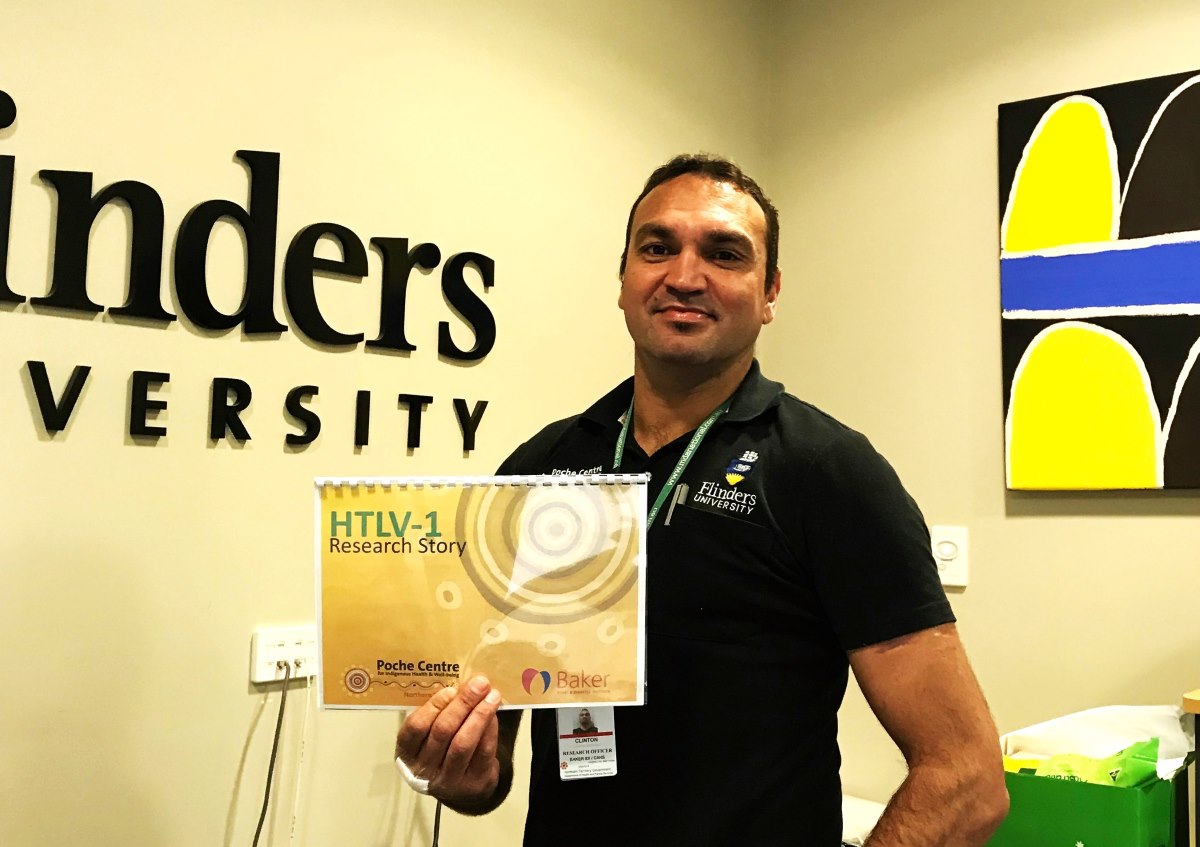
Clinton Pepperill, is a local Aranda* man, undertaking research and health literacy related activities at the Poche Centre Alice Springs. Although working part-time, Clinton has achieved an astonishing milestone in his employment in a number of collaborative research projects with the Poche Centre and Baker Institute. To date, Clinton has recruited over 1200 participants to various studies into HTLV-1 among Aboriginal populations.
Clinton uses his grass roots connections and in-depth knowledge as a member of the Aboriginal community to identify and engage participants in the research. According to Clinton, it essential to approach people with respect, to establish rapport and to allow time for asking questions. People feel safe to ask questions of another community member and he ensures there is no pressure in recruiting, which is firmly in the hands of the participants.
He has found people are generally interested and want to know more before they consent. Clinton’s informal and unhurried approach allows time for this, and achieves a phenomenal uptake from the community.
With many Aboriginal staff, the personal and professional are not separate. This has both positives and negatives. The positives are that relationships help with engagement. However, there is a heavy responsibility that comes with that, having to discuss difficult issues at times. Clinton has to consider factors such as age and gender when undertaking his duties and is careful to work with other team members to ensure the topic is dealt with sensitively. Giving results of HTLV-1 screening for example, has to be undertaken by medical officers, even though people will ask Clinton as someone who speaks their own language. Clinton sees his role as bridging the communication divide and contributing to the development of culturally accessible health education resources.
*Aranda is one accepted spelling format. Other formats include Arunda/Arrernte.

